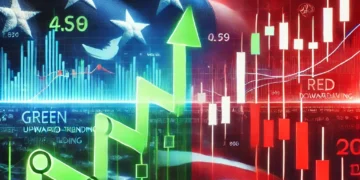Navigating the Tides of Change: The Evolution of Forex and Stock Markets
The financial markets are ever-evolving entities, shaped by a confluence of technological advancements, regulatory shifts, and global economic dynamics. Both the foreign exchange (Forex) market and stock markets have undergone significant transformations over the years, altering the landscape in which investors operate. This essay explores the changes in the Forex and stock markets, delves into the factors driving these changes, assesses the implications for traders and investors, and concludes with a comprehensive summary of the current state and future outlook of these pivotal markets.
The Evolution of the Forex Market
The Forex market, the world’s largest financial market, is renowned for its high liquidity, 24-hour trading, and vast geographical dispersion. Its evolution has been marked by several key developments:
Technological Advancements:
- Introduction of electronic trading platforms has democratized access, allowing retail investors to participate alongside institutional traders.
- Algorithmic trading and high-frequency trading (HFT) have increased market efficiency but also raised concerns about market volatility and flash crashes.
Regulatory Changes:
- Post-2008 financial crisis, regulatory bodies have tightened oversight, introducing measures to enhance market transparency and protect retail investors.
- The rise of cryptocurrencies and digital assets has prompted regulators to consider new frameworks to accommodate these innovations.
Global Economic Shifts:
- Emerging market currencies have gained prominence, reflecting shifts in global economic power.
- Political events, trade wars, and geopolitical tensions increasingly influence currency valuations.
The Transformation of Stock Markets
Stock markets have similarly experienced profound changes, influenced by technological, regulatory, and economic factors:
Technological Innovations:
- The transition from physical trading floors to electronic trading has increased market accessibility and reduced transaction costs.
- Big data analytics and AI are being harnessed for better market prediction and personalized investment strategies.
Regulatory Adjustments:
- Enhanced regulations post-financial crisis aim to improve market integrity and investor confidence.
- The advent of environmental, social, and governance (ESG) investing has led to regulatory considerations on disclosure and reporting.
Economic and Societal Trends:
- The growing influence of retail investors, fueled by online trading platforms and social media, has changed market dynamics.
- The sustainability and green finance movement have steered capital towards companies with strong ESG credentials.
Pros and Cons of Market Changes
Pros:
- Increased Accessibility: Technological advancements have lowered barriers to entry, enabling broader participation in financial markets.
- Enhanced Efficiency: Electronic trading and algorithmic strategies have streamlined operations, improving market liquidity and price discovery.
- Greater Transparency: Regulatory reforms have led to more transparent markets, bolstering investor trust.
Cons:
- Market Volatility: The prevalence of algorithmic trading can exacerbate market volatility, leading to rapid price fluctuations.
- Complexity and Overload: The abundance of information and sophisticated trading tools can overwhelm retail investors.
- Regulatory Lag: The pace of regulatory change often struggles to keep up with financial innovation, creating potential loopholes.
Navigating the Evolved Markets: Strategies for Success
- Embrace Lifelong Learning: Staying informed about market developments and technological innovations is crucial.
- Adopt a Risk-Managed Approach: Diversification and prudent risk management strategies are more important than ever.
- Leverage Technology Wisely: Utilize technological tools for analysis and execution but remain critical of their limitations.
The Forex and stock markets have undergone significant transformations, driven by technological innovation, regulatory changes, and shifts in the global economic landscape. These developments have democratized access to financial markets, enhanced operational efficiency, and prompted a rethink of traditional investment strategies. However, they also present challenges, including increased market volatility, information overload, and regulatory gaps.
Looking forward, the continued evolution of these markets is inevitable, with technology and globalization set to play pivotal roles. Investors and traders who adapt to these changes, leveraging new tools and strategies while maintaining a keen awareness of their risks and limitations, will be best positioned to thrive. As financial markets continue to evolve, the key to success lies in embracing change, staying informed, and adhering to disciplined investment practices. The journey through the ever-changing landscape of Forex and stock markets is complex but navigable, offering vast opportunities for those prepared to explore its depths.

























